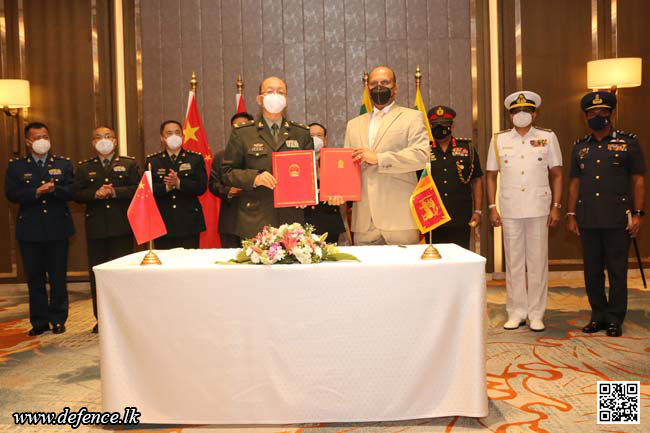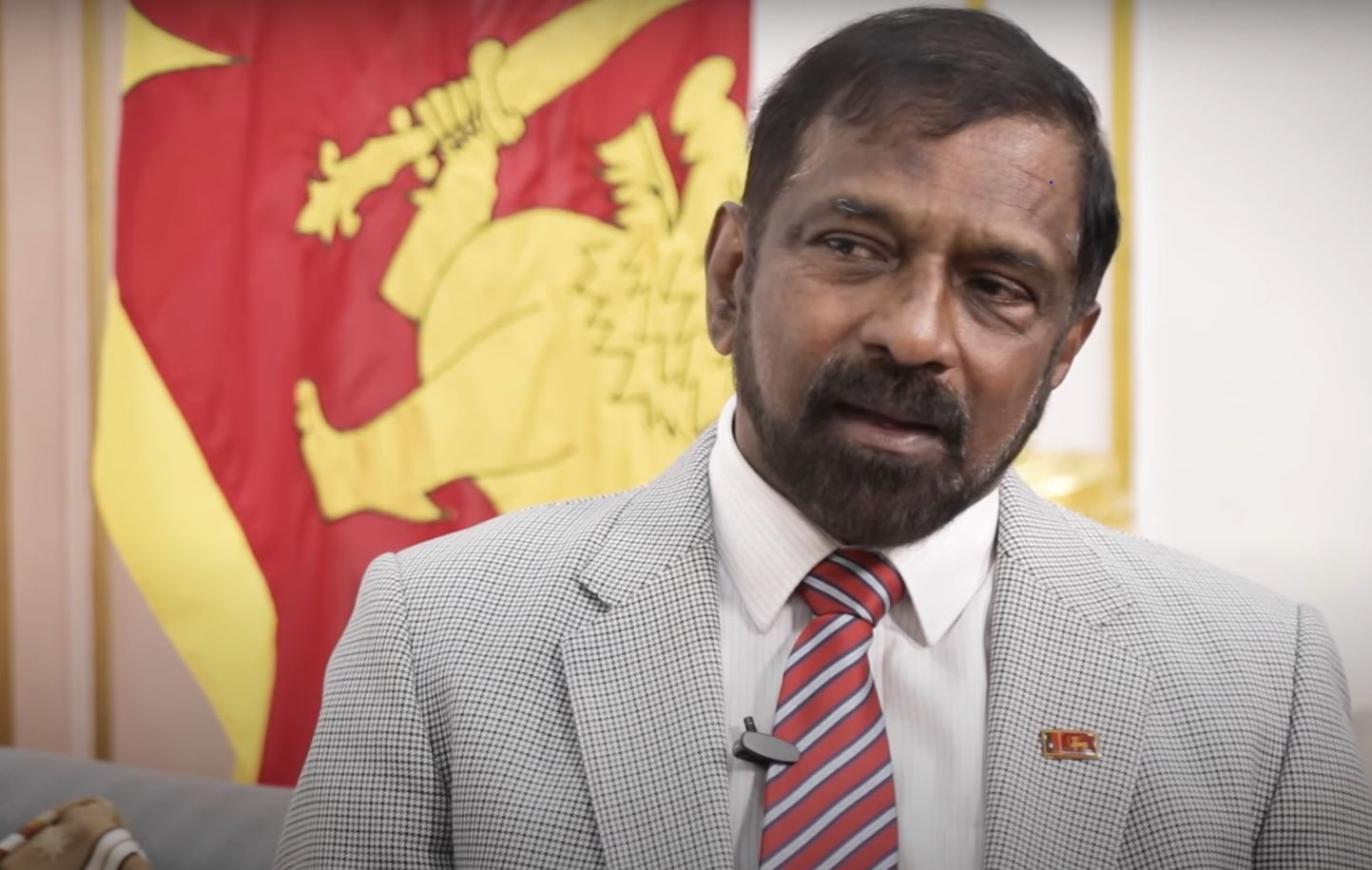
Bilateral trade discussions were held between China’s Defence Minister Wei Fenghe and Sri Lanka’s Defence Secretary, and accused war criminal, Kamal Gunaratne, following the passage of a UN resolution which raised concerns over military impunity in Sri Lanka.
In these discussions, Fenghe expressed interest for China “to enhance practical cooperation and to promote bilateral relations to a greater extent” and highlighted existing military ties between the two countries.
Human Rights
During the UN Human Rights Council session, China‘s attacked representative, Mr Chen Xu attacked the UN High Commissioner’s report claiming:
“It is the consistent standard China to oppose politicisation double standards of human rights, as well as using human rights as a pretext for interference in other's internal affairs”.
The UN session followed a visit by a senior Chinese diplomat to Sri Lanka, during which he pledged to strengthen economic ties with Sri Lanka and to defend the country at “international fora including United Nations Human Rights Council”.
Military alliances
Sri Lanka’s increasing ties with China come as they distance themselves from both India and the US-backed Quadrilateral Security Dialogue Alliance. In November, Sri Lanka’s Foreign Secretary, and accused war criminal, Jayanth Colombage, expressed concern over the alliance asking:
“Do we really need a quad? Will Quad not give rise – not to a cold war – but at least a cool war in the Indian ocean?”
This also follows Sri Lanka’s unilateral withdrawal from the East Container Terminal (ECT) with India and Japan, worth an estimated $700 - $800 million dollars. Last week, Sri Lanka’s Fishery Minister, and leader of the pro-government paramilitary Eelam People's Democratic Party (EPDP), Douglas Devananda, pledged to continue to Indian fishermen who crossed into Sri Lankan waters. Tamil political leaders have accused Sri Lanka Navy of torturing and killing Indian Tamil fishermen.
Read more here.
We need your support
Sri Lanka is one of the most dangerous places in the world to be a journalist. Tamil journalists are particularly at threat, with at least 41 media workers known to have been killed by the Sri Lankan state or its paramilitaries during and after the armed conflict.
Despite the risks, our team on the ground remain committed to providing detailed and accurate reporting of developments in the Tamil homeland, across the island and around the world, as well as providing expert analysis and insight from the Tamil point of view
We need your support in keeping our journalism going. Support our work today.
For more ways to donate visit https://donate.tamilguardian.com.


